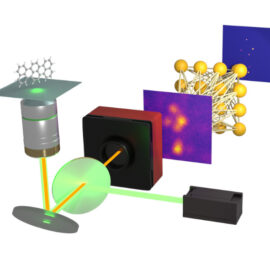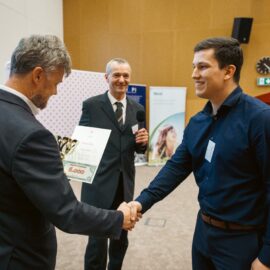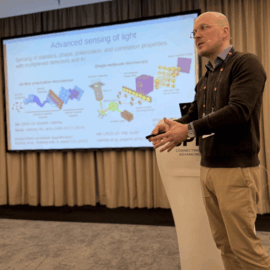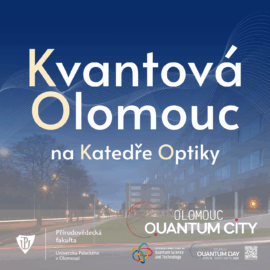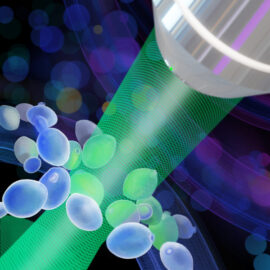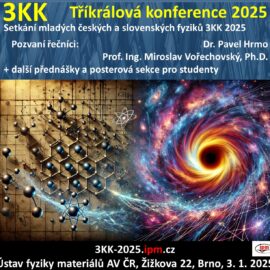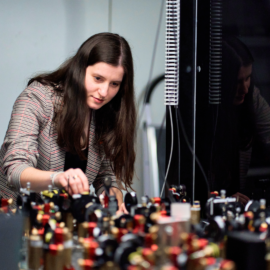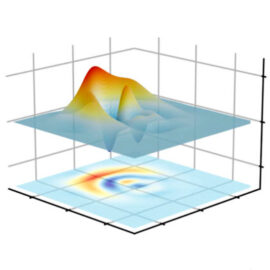Calibration-free single-frame super-resolution fluorescence microscopy: Super-resolution fluorescence microscopy has changed the way we look at life and materials, yet methods such as STORM or PALM still hinge on measuring the point-spread function of each microscope and recording thousands of sparsely
Our students excel in the Student Scientific Competition – Dean’s Award 2025
Conference Season in Full Swing for QOLO
Kvantová Olomouc 2025
Breaking Boundaries in Phase Microscopy: Incoherent Light, Ultimate Precision
6-Year Anniversary of the new Quantum Optics Lab Facilities
From Stars to Molecules: AI Guided Device-Agnostic Super-Resolution Imaging
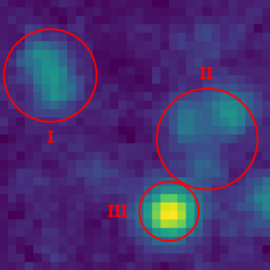
Super-resolution imaging has transformed scientific disciplines, from molecular biology to astronomy, by enabling visualization beyond the diffraction limit. However, current super-resolution methods require extensive calibration for each imaging setup, restricting their applicability. Our latest research introduces a novel AI-driven, device-agnostic


